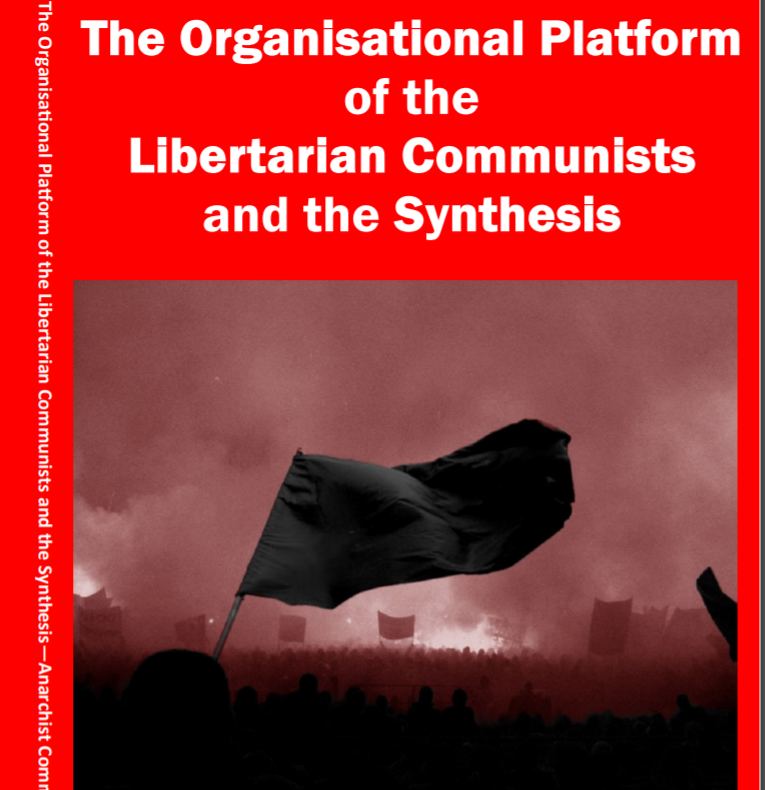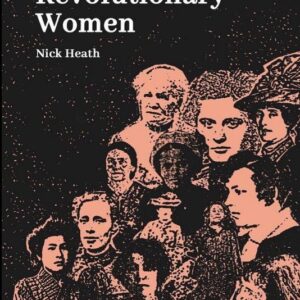Description
The Organisational Platform of the Libertarian Communists and the Synthesis
by the Anarchist Communist Group
The Organisational Platform of the Libertarian Communists is probably one of the most controversial documents about theory and practice within the anarchist movement. Today Platformism, as it is known in terms of those who support its central tenets is represented by the groups around the international coordination Anarkismo. This coordination includes those groups and organisations influenced by Especifismo, which developed in Latin American anarchist circles, and which shares many of the same tenets as the Platform.
Today there is still controversy about the Platform, as some position themselves firmly for the Platform, whilst others, usually influenced by Synthesism or anti-organisational insurrectionism, take a stand against it.
For us, it is important to recognise the Platform as an important historical reference that offers notable suggestions as how anarchist communists should organise effectively, namely through theoretical and tactical unity. It also posited the concept of the ‘leadership of ideas’, that is, the importance of establishing a strong anarchist communist influence within the workers’ movements, social movements etc. As Arshinov noted,
Direction of the masses from the ‘ideas’ point of view simply means the existence of a guiding idea in their movement. In the world of socialist struggle and socialist demands, such ideas are not numerous. But it is natural that we anarchists wanted the toilers’ guiding idea to be the anarchist idea and not that of the social democrats for example, of those who have only recently betrayed the Viennese workers’ revolutionary movement (1927).
The Organisational Platform was written in 1926, and as such, has many gaps and omissions, as recognised by its authors themselves.
£6.00 inclusive of p&p





